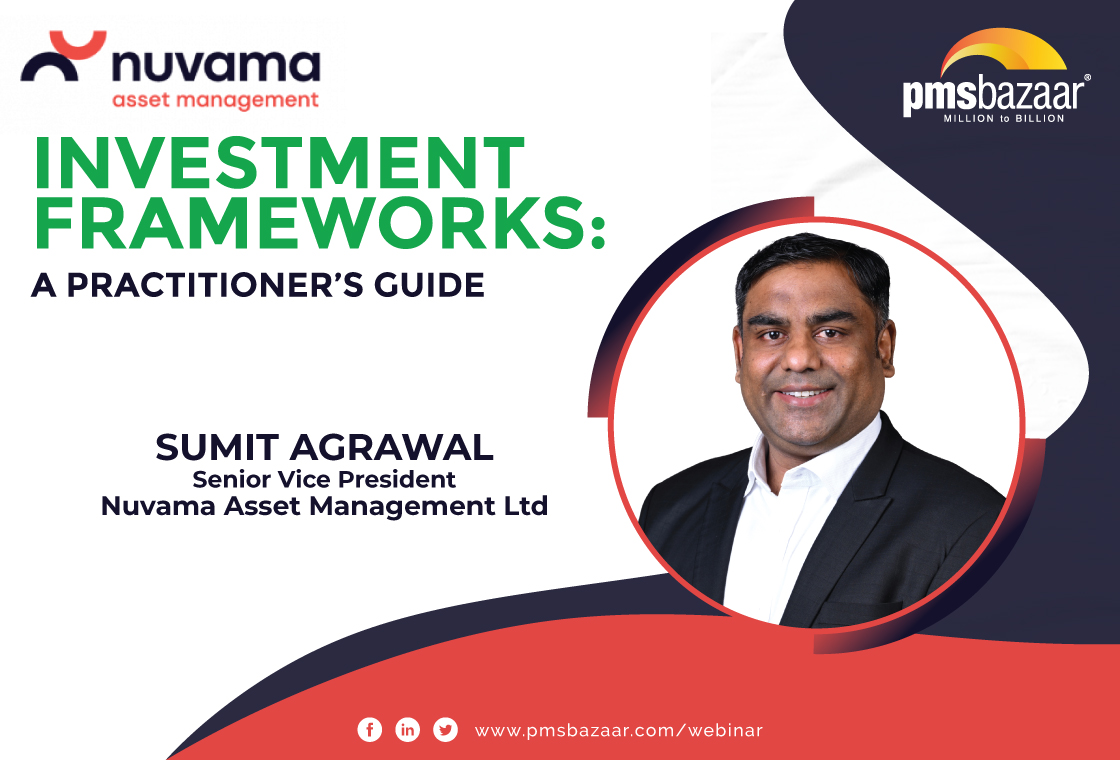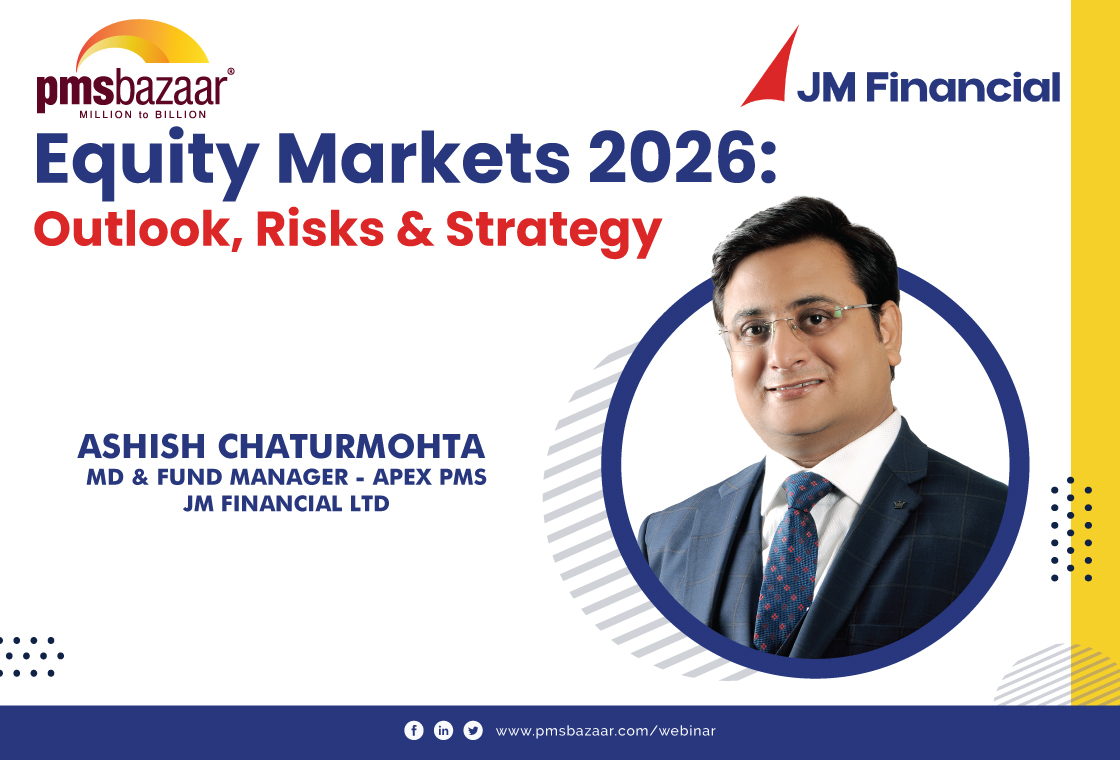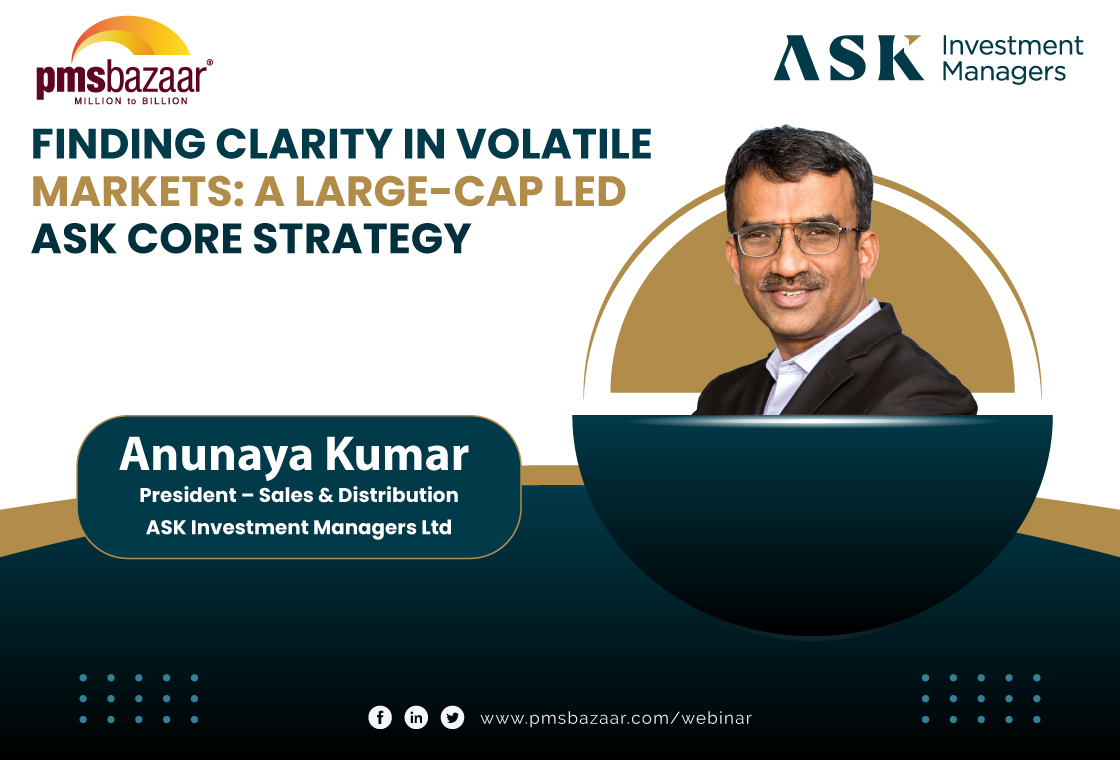Ascertain whether the foundations of Indian economic recovery are in place? Is India on the verge of the 5th Economic Boom? Why it makes no sense to time the entry/exit of CCP?. Here is an Excerpts from the Exclusive Webinar on " Impact of COVID on the Economy, Markets, and Marcellus PMS Portfolio" by Mr. Saurabh Mukherjea & Mr. Rakshit Ranjan, Marcellus Investment Managers - PMS

Impact on Indian Economy: 5th Economic Boom in India
The Indian economy has witnessed four economic booms after Independence. Mr. Saurabh Mukherjea, Founder & CIO, Marcellus PMS, reasoned that all the four economic booms occurred after a period of recession in US Economy. He further discussed the historical empirical evidence to substantiate his convictions.
Oil Prices: US oil prices crashed in the mid 80s, in the early 90s, 9/11 incident in 2001 and in the year 2009. Currently, oil prices crashed from $85 per barrel to $25 per barrel. This oil price crash is saving India about $ 90 Billion, which is about 3% GDP boost.
Bond yield collapse: American 10-year bond yield went through a 2.5% to -0.5%. It forces US fund managers to put their money in emerging markets in countries like India.
Interest Rate Cuts in India: Because the American 10-year bond yield has fallen so much, the gap between the American and Indian 10-year bond yield is massive now which gives RBI confidence to pump in huge amounts of money into the financial system.
Mr. Saurabh Mukherjea’s concluding comment was - India will enter the 5th Economic Boom within 6 months to 2 years’ time span.
Deducing the whole truth can cool you off from apprehensions on Corona Pandemic
Mr. Saurabh Mukherjea reasoned that the psychological effects of Corona are larger than the truth. On an average 50,000 individuals succumb to Industrial accidents per year and about 1, 50, 000 in road accidents. Rational thinking can negate the popular belief and make you realize that this is not an epic disaster, definitely not for India considering the affected and mortality rates. The focus shift of media is already on the Economic impact of the pandemic.
Talking about Marcellus PMS portfolio strategy’s performance, Mr. Saurabh Mukherjea, pointed out that Marcellus has always been creating good Alpha since inception over the benchmark. The performance of the Marcellus strategy during the years 2017 and 2018 is evident. The strength of their core philosophy has been the reason for Marcellus performing during good as well as bad market cycles.
The Core Philosophy of Marcellus
1. Companies with clean books of account. 2. Companies selling only essential goods. 3. Companies with such a Business model with high barriers difficult to be replicated by competitors.
Marcellus ensures only companies with these three tenets are selected to be included in their PMS Portfolio.
Convictions of Marcellus PMS & Stock Selection
Mr. Rakshit Ranjan, Founder & Portfolio Manager, Marcellus PMS, presented facts and figures through exhibits systematically extrapolating the convictions of the Marcellus on their portfolio strategies. The salient features of the presentation are appended:
1. Marcellus select companies which are less dependent on imports and exports, as the effects of Corona related restrictions on such companies cannot be rightly assessed.
2. Essential goods manufacturers are sure to regain their position, as need for essential goods cannot remain weak for a long duration.
3. Companies which are financially sound to support their distributors and partners with financial assistance or periods of extension on supply credit.
4. Companies with lesser dependence on temporary labor, thus establishing a strong supply chain and distribution channels.
5. Companies that benefited from the tax rate cut, as the excess cash will ensure stronger Profit & Loss account in the ensuing years. The power of cash can be used to suffocate the competition out through price cuts, incentives, etc.
In support of the discussed features of good stock selection, Mr. Rakshit Ranjan indicated few stocks as an example. Berger transferred cash to the accounts of 12,000 of its painters, Jockey extended credit period to its distributors, Relaxo footwear and Page industries with more full time labors etc. He also pointed out that few of the portfolio companies were in the 36% tax rate last year and will be beneficiaries of the tax rate cut, both in GST as well as in corporate taxes.
Mr. Rakshit Ranjan concluded the non-financial part of the portfolio construction indicating that combinations of these measures are already incorporated in the Portfolio Strategy Marcellus Consistent Compounders.
Financials & Banking
Mr. Rakshit Ranjan deliberated two factors to choose stocks from the financial sector namely, the ability to survive through the current financial crisis and the ability to accelerate loan book growth consolidating market share in the next 2 to 3 years.
Examples of the Private Bank HDFC’s historical performance after the 1997-98 crisis, which emerged with robust ROE growth and NBFC Bajaj Finance which has the leverage of 4.9 times, with lowest ROE of 22-23% and with the principle of no frequent refinancing and Capital Adequacy Ratio of 25% along with huge liquidity available with a robust balance sheet.
Deployment philosophy of capital in PMS Strategies of Marcellus
Mr. Rakshit Ranjan revealed that Marcellus PMS does not believe in timing the market, the funds received either from existing portfolios as top-up or from any new portfolio account are deployed the very next day. The confidence is derived from the structure of the portfolio strategies of Marcellus PMS classifying the companies into two major parts.
1. Mediocre Quality Companies: CAGR shift is very high between 12% to 26%, draw down during the crisis is twice as compared to high-quality companies.
2. High-Quality Companies: CAGR shift is a lesser range, but at higher bracket of 20% to 26%, draw down during the crisis is less than half of other companies and the broader market.
Examples of HDFC and Infosys were discussed by Mr. Rakshit Ranjan as High-Quality Companies. Since, these types of companies form part of the PMS strategy Consistent Compounders, there is no need to time the market. After the 2008 market crash, from the bottom of March 2009, companies that are part of Marcellus Consistent compounders PMS strategy recovered within 4 months while the Sensex took over 20 months to recover.
Selling Stocks in the Portfolio
Marcellus PMS has a clear mandate on “when to sell a stock?”
1. Any reduction in quality of franchise over a period of time
2. Strength of the competitive advantage is reduced or not sustained
3. When the conviction on the stock drops
4. Valuation criterion change
5. Sudden change in the company’s DNA
Mr. Rakshit Ranjan cited the example of Marico, which they sold when they found the company’s DNA has suddenly changed and GRUH finance when the ownership changed from HDFC to Bandhan Bank.
Sector opinion and Stock Selection Advice
During the webinar, Mr. Rakshit Ranjan advised investors to check the performance of a company for the past 10 years before considering it in the portfolio. He opined telecom is not a sector for a long term investor as there will be low revenue CAGR. Insurance can be a good pick as the threat of new entrants is low and the ability of the industry to price their products.
Questions from the participants of Webinar
On a notable question, whether the Management changes has big impact on performance?, Mr. Rakshit Ranjan answered that the smooth transition of senior management is yet to be seen in India and quoted examples of ICICI & Axis Banks. He further agreed that the risk remains but big corporations have the advantage of institutionalized operations to reduce such risk.
The webinar concluded with the observation that after the COVID-19 India can recover very quickly and investors should use this opportunity to invest.
An Initiative by PMS Bazaar
Those who missed the opportunity to hear from the Experts directly can listen to the entire session through the appended link:
Recent Blogs

January Rout, Extreme Dispersion: PMS Returns Swing From Losses to Gains
Benchmark falls deepened losses, but multi-asset and debt cushioned portfolios meaningfully

Investment Frameworks : A Practitioner’s Guide
PMS Bazaar recently organized a webinar titled “Investment Frameworks: A Practitioner’s Guide,” which featured Mr. Sumit Agrawal, Senior Vice President, Nuvama Asset Management Limited. This blog covers the important points shared in this insightful webinar.

Aurum Multiplier Portfolio - Where Small and Mid-Cap Alpha Meets Large-Cap Stability
PMS Bazaar recently organized a webinar titled “Aurum Multiplier Portfolio - Where Small and Mid-Cap Alpha Meets Large-Cap Stability,” which featured Mr. Sandeep Daga, MD& CIO, Nine Rivers Capital and Mr. Kunal Sabnis, Portfolio Manager, Nine Rivers Capital. This blog covers the important points shared in this insightful webinar.

Flat Markets, Wide Outcomes: How 484 PMS Strategies Performed in Dec 2025
December 2025 was a month where market returns stayed close to flat, with the Nifty 50 TRI at -0.28% and the BSE 500 TRI at -0.24%.

Equity Markets 2026: Outlook, Risks and Strategy
PMS Bazaar recently organized a webinar titled “Equity Markets 2026: Outlook, Risks and Strategy,” which featured Mr. Ashish Chaturmohta, MD & Fund Manager – APEX PMS, JM Financial Limited. This blog covers the important points shared in this insightful webinar.

MICRO CAPS: The Dark Horses of the Indian Equity Market
PMS Bazaar recently organized a webinar titled “MICRO CAPS: The Dark Horses of the Indian Equity Market,” which featured Mr. Rishi Agarwal and Mr. Adheesh Kabra, both Co-Founders and Fund Managers, Aarth AIF. This blog covers the important points shared in this insightful webinar.

Finding Clarity in Volatile Markets: A Large-Cap Led ASK CORE Strategy
PMS Bazaar recently organized a webinar titled “Finding Clarity in Volatile Markets: A Large-Cap Led ASK CORE Strategy,” which featured Mr.Anunaya Kumar, President – Sales and Distribution ASK Investment Managers Limited. This blog covers the important points shared in this insightful webinar.
.jpg)
Passively Active Investing — A Modern Investor’s Lens on ETF-Based PMS
PMS Bazaar recently organized a webinar titled “Passively Active Investing — A Modern Investor’s Lens on ETF-Based PMS,” which featured Mr. Karan Bhatia, Co-Founder and Co-Fund Manager , Pricebridge Honeycomb ETF PMs. This blog covers the important points shared in this insightful webinar.

